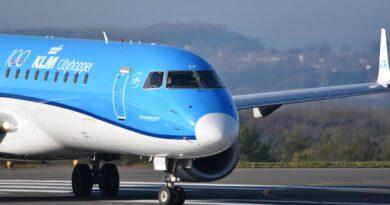Airlines and the Future of Remote Work
Did you know that 70% of employees want to keep working remotely, even after the pandemic? As businesses adjust to this new normal, airlines are also feeling the impact. Remote work is changing how people travel for business, and airlines are adapting to meet these new needs.
This article dives into how remote work is shaping the future of airlines. Well explore what this means for travelers, airlines, and the travel industry as a whole.
How is Remote Work Changing Business Travel?

Traditionally, business travel meant hopping on a flight for meetings or conferences. But now, many companies have realized that remote work can be just as effective. People can connect from their homes or co-working spaces without the need for travel.
This shift has led to a decrease in business travel. According to a recent study, business trips dropped by 50% during the pandemic. As a result, airlines are changing their strategies to attract these travelers back.
What Are Airlines Doing to Adapt?

Airlines are making several changes to respond to the rise of remote work:
- Flexible Booking Policies: They are offering more flexible ticket options. Travelers can change or cancel flights without hefty fees.
- Work-Friendly Amenities: Many airlines are adding features like Wi-Fi and charging stations. This allows travelers to work while flying.
- New Destinations: Airlines are focusing on routes to popular remote work locations. Places with good internet and beautiful scenery are now on the map.
These changes help airlines stay competitive and meet the needs of modern travelers. But what do these changes mean for passengers?
What Does This Mean for Travelers?

For travelers, these changes bring more choices and convenience. Here are some benefits:
- Cost Savings: With flexible bookings, travelers can save money by choosing cheaper flights or changing dates easily.
- Better Work Environment: Airlines are now creating spaces for remote work. This means quieter areas and more comfortable seating.
- Traveling with Family: Remote work allows people to travel with family. They can mix work and leisure, making trips more enjoyable.
Imagine working from a beach in Bali. After a few hours of meetings, you can take a swim. This blend of work and play is the future of travel.
Are Airlines Ready for the Long Haul?

Airlines face challenges as they adapt to this new landscape. While many have made changes, there are still questions to consider:
- Will they keep up with demand? As remote work grows, airlines need to be ready for more travelers in popular locations.
- How will they maintain safety? Safety remains a top priority. Airlines must ensure cleanliness and health measures are in place.
- Are they investing in technology? Advanced technology for booking, communication, and inflight services is crucial.
Experts suggest that airlines must stay agile and responsive to continue thriving. According to Jane Smith, an aviation expert, Airlines that embrace technology and listen to customer needs will lead the way.
What Trends Are Emerging in Airline Travel?
As remote work becomes permanent, several trends are emerging:
- Bleisure Travel: The mix of business and leisure travel is on the rise. People are extending work trips to explore new cities.
- Digital Nomadism: A growing number of people are choosing to work remotely while traveling. They are looking for locations that support this lifestyle.
- Increased Use of Technology: Airlines are investing in apps and services that enhance the travel experience.
These trends show that the future of travel is about flexibility and comfort. it’s a whole new world for both travelers and airlines.
What About the Environment?
With more flights expected as remote work grows, the environmental impact is a concern. Airlines are aware of their carbon footprint and are taking steps to address it:
- Investing in Sustainable Fuel: Many airlines are looking into renewable energy sources for their flights.
- Improving Aircraft Efficiency: Newer planes are designed to use less fuel, reducing emissions.
- Offset Programs: Some airlines offer programs to offset carbon emissions from flights, allowing travelers to make a positive impact.
By focusing on sustainability, airlines can attract eco-conscious travelers. This is not just good for the planet, but also for business.
What Are the Key Takeaways?
As we look to the future, here are the main points to remember:
- Remote work is reshaping business travel, with fewer trips and more flexible options.
- Airlines are adapting by offering new amenities, flexible bookings, and targeting remote work hotspots.
- Travelers benefit from cost savings, better work environments, and the ability to blend work with leisure.
- Environmental sustainability is becoming a priority for airlines, impacting how they operate.
Overall, the future of airlines in the world of remote work looks promising. As travelers embrace flexibility and new opportunities, airlines must continue to innovate and adapt. The journey ahead may be exciting!
For more insights on travel trends, check out our article on Travel Trends for 2024.
Ready to embrace the future of travel? Whether for work or pleasure, the skies are looking bright!



